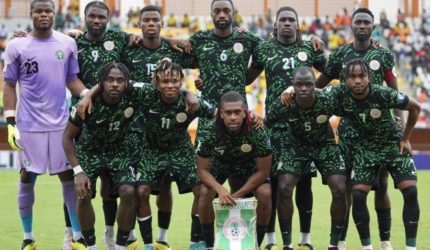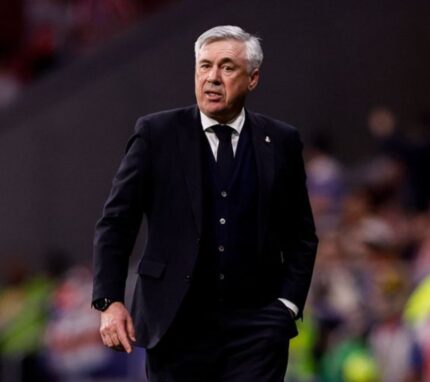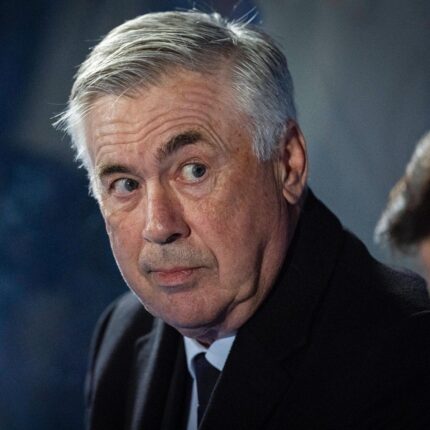Nigeria’s aspirations for the 2026 World Cup suffered a significant blow as they endured a surprising 2-1 defeat to Benin in their latest qualifying match. The Super Eagles, who had drawn their first three qualifiers, find themselves in a precarious position, now sitting fifth in their group.
A Promising Start Quickly Unravels
The match began with promise for Nigeria, as Raphael Onyedika put the Super Eagles ahead within the first half-hour. His impressive strike from the edge of the box hinted at a positive outcome for the team. However, Nigeria’s lead was short-lived. A critical defensive error allowed Jodel Dossou to equalize for Benin, capitalizing on a mix-up at the back. The situation worsened in first-half stoppage time when Steve Mounie, left unmarked during a corner, headed Benin into the lead.
This rapid turnaround before the break highlighted Nigeria’s defensive vulnerabilities and underscored the need for improved cohesion and concentration in their backline. Despite their early advantage, the Super Eagles’ inability to maintain their lead signaled deeper issues within the squad that must be addressed promptly.
Gernot Rohr’s Triumphant Return
Adding to Nigeria’s woes was the fact that their former coach, Gernot Rohr, masterminded Benin’s victory. Now at the helm of Benin, Rohr enjoyed a successful reunion against his former team, guiding his new side to a crucial win. This result not only boosts Benin’s qualifying campaign but also casts a shadow over Nigeria’s prospects, with Rohr proving his tactical acumen once more.
Rohr’s intimate knowledge of the Nigerian squad undoubtedly played a role in Benin’s strategic approach to the match. His ability to exploit Nigeria’s weaknesses and instill confidence in his players was evident throughout the game. For Nigeria, this loss to their former mentor is a bitter pill to swallow, as it underscores the importance of tactical adaptability and strategic planning in their upcoming fixtures.
Current Standing and Future Prospects
Following this defeat, Nigeria finds themselves fifth in their six-team group with only three points from four games. In stark contrast, Benin leads the group with seven points, although Lesotho, with a game in hand, could overtake them. The current standings highlight the uphill battle Nigeria faces if they are to secure a spot in the 2026 World Cup.
To remain in contention, Nigeria must significantly improve their performance in the remaining six qualifiers. With a lengthy break until their campaign resumes in March next year against Rwanda, there is time for introspection and strategizing. Subsequent fixtures against Zimbabwe, Rwanda, South Africa, Lesotho, and a crucial rematch with Benin will determine their fate. The pressure is on for the Super Eagles to deliver consistent and winning performances.
Struggles in Qualification in Group C for Nigeria’s
This defeat leaves Nigeria in a precarious position in their qualification group. They now sit fifth in their six-team group, with only three points from their first four games. Benin, on the other hand, lead Group C with seven points, though Lesotho, with a game in hand, could potentially overtake them. Only the team that finishes top of the group is guaranteed a place at the 2026 World Cup, with the four best runners-up having a chance to qualify through a play-off.
Nigeria’s performance thus far has been disappointing, and they will need to significantly improve to stand any chance of qualifying. The pressure is mounting on the Super Eagles to deliver results in their remaining matches. The team must regroup and address the issues that have plagued them in these early qualifiers, particularly their defensive vulnerabilities and inability to maintain leads.
Critical Path Forward for the Super Eagles
Looking ahead, Nigeria’s path to World Cup qualification demands a drastic turnaround in form. They must capitalize on the break to reassess and restructure their strategy, ensuring they address the defensive lapses that have plagued their campaign thus far. The return match against Rwanda in March will be pivotal, setting the tone for the remaining qualifiers.
The management team and players alike need to foster a resilient mindset, focusing on both tactical improvements and mental toughness. Hosting Zimbabwe shortly after the Rwanda match presents an opportunity to regain momentum. Additionally, fixtures against competitive sides like South Africa and a resurgent Lesotho will test Nigeria’s resolve and ability to perform under pressure.
Nigeria’s journey to the 2026 World Cup is fraught with challenges, but with strategic adjustments and renewed determination, the Super Eagles can still soar to secure their place in the tournament.














